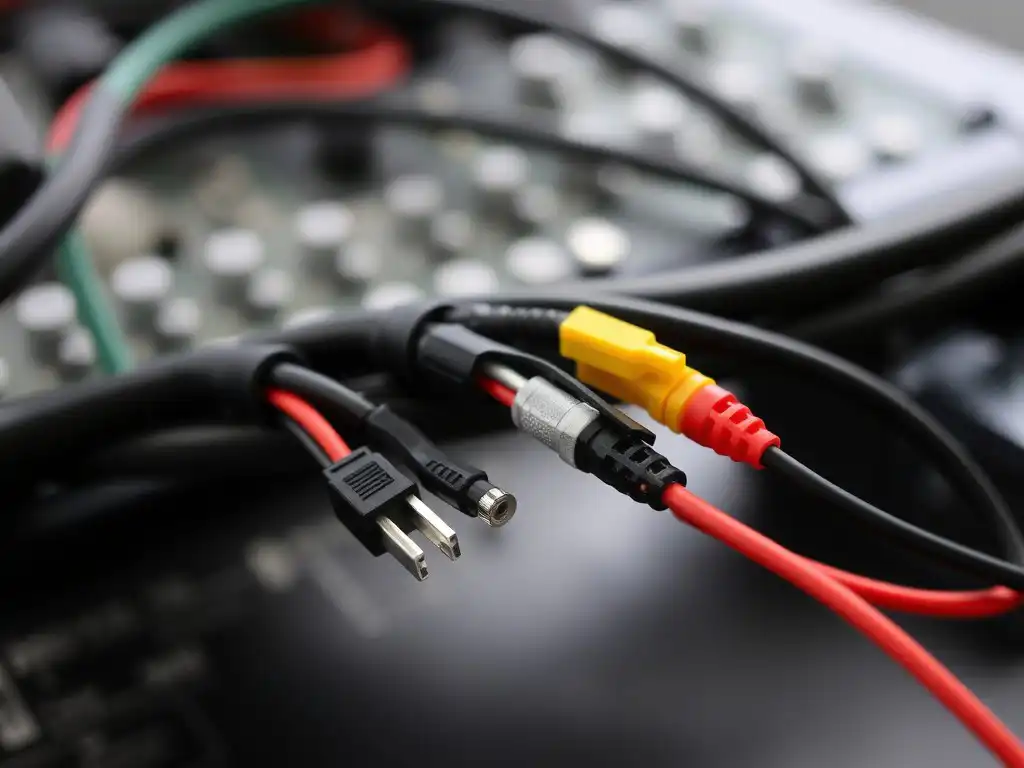As a professional automotive wire manufacturer,we recognize the importance of understanding the various applications and specifications of automotive wires.Automotive wires,also known as car wires or automotive wires,play a vital role in the electrical system of a vehicle.Its primary function is to transmit electrical current and signals to various components within the car,ensuring that everything from the ignition system to the infotainment system operates effectively.In this article,we will take a deep dive into the various uses of automotive wires and the key attributes that make them indispensable in modern vehicles.
1.Power Distribution
1.1 Battery and Starter Connections
One of the most basic uses of automotive wires is power distribution,specifically connecting the battery to the starter motor and other major components.These wires must be able to handle high current loads and are typically composed of large-gauge,multi-strand copper or aluminum conductors to minimize voltage drop and ensure reliable power delivery.
1.2 Charging System
The charging system,including the alternator and voltage regulator,relies on automotive wires to maintain battery charge and power the electrical system when the engine is running.In this case,automotive wires must be resistant to high temperatures and vibrations to withstand the harsh under-hood environment.
2.Signal Transmission
2.1 Sensor Connections
Modern vehicles are equipped with many sensors that monitor engine performance,emissions,braking,and other critical functions.Automotive wires are used to connect these sensors to the vehicle’s central electronic control unit(ECU)to facilitate the data transmission required to optimize performance and safety.Given the required precision,these wires are often shielded to reduce electromagnetic interference(EMI).
2.2 Communication Networks
Cars now feature advanced communication networks such as CAN(Controller Area Network)and LIN(Local Interconnect Network)systems,which require specialized automotive wires for data transmission.These communication lines ensure that different modules within the vehicle can seamlessly exchange information,enabling features such as adaptive cruise control,automatic braking,and more.

3.Lighting Systems
3.1 Exterior Lighting
Automotive wires are critical for exterior lighting systems,including headlights,taillights,turn signals,and brake lights.The wires must be strong enough to handle fluctuating current loads and environmental exposure.Typically,these wires are insulated with high-quality materials such as PVC or cross-linked polyethylene(XLPE)to resist UV radiation,moisture,and extreme temperatures.
3.2 Interior Lighting
Interior lighting,including instrument panel lighting,dome lights,and infotainment backlighting,also relies on automotive wiring.These wires must be flexible,easy to install,and resistant to wear and tear caused by interior conditions.
4.Comfort and Convenience
4.1 Heating,Ventilation and Air Conditioning(HVAC)
The vehicle’s HVAC system requires a network of automotive wiring to control components such as blowers,actuators,and sensors.Given the critical role HVAC plays in enhancing passenger comfort,the wiring must be reliable and able to operate under varying temperature conditions.
4.2 Power Accessories
Modern vehicles are equipped with many power accessories such as power windows,seats,and mirrors.Automotive wiring supplies the necessary current to these devices to ensure seamless operation.The wiring must be able to handle the intermittent high currents common in these applications without degradation in performance.
5.Safety Systems
5.1 Airbags and Seatbelt Pretensioners
Automotive wiring plays a critical role in the deployment of airbags and the activation of seatbelt pretensioners during a crash.These wires must be highly reliable and fail-safe,often incorporating redundant features to ensure the highest safety standards.
5.2 Anti-lock Braking System(ABS)and Traction Control System
ABS and traction control systems use automatic wiring to connect wheel speed sensors and controllers.This precise wiring is essential to maintaining vehicle stability and control,especially in adverse driving conditions.
Automotive wires are an integral component of the complex electrical systems of modern vehicles.Their applications range from basic power distribution to advanced data communication networks,safety systems,lighting,and comfort features.As a professional automotive wire manufacturer,we emphasize the importance of product quality and reliability.We ensure that our automotive wires meet strict industry standards,including those set by organizations such as ISO and SAE,to provide reliable performance in all automotive applications.
By leveraging our expertise and advanced manufacturing technologies,our goal is to provide automotive wires that not only meet but exceed our customers’expectations,thereby improving the safety,efficiency,and functionality of the vehicles they produce.



